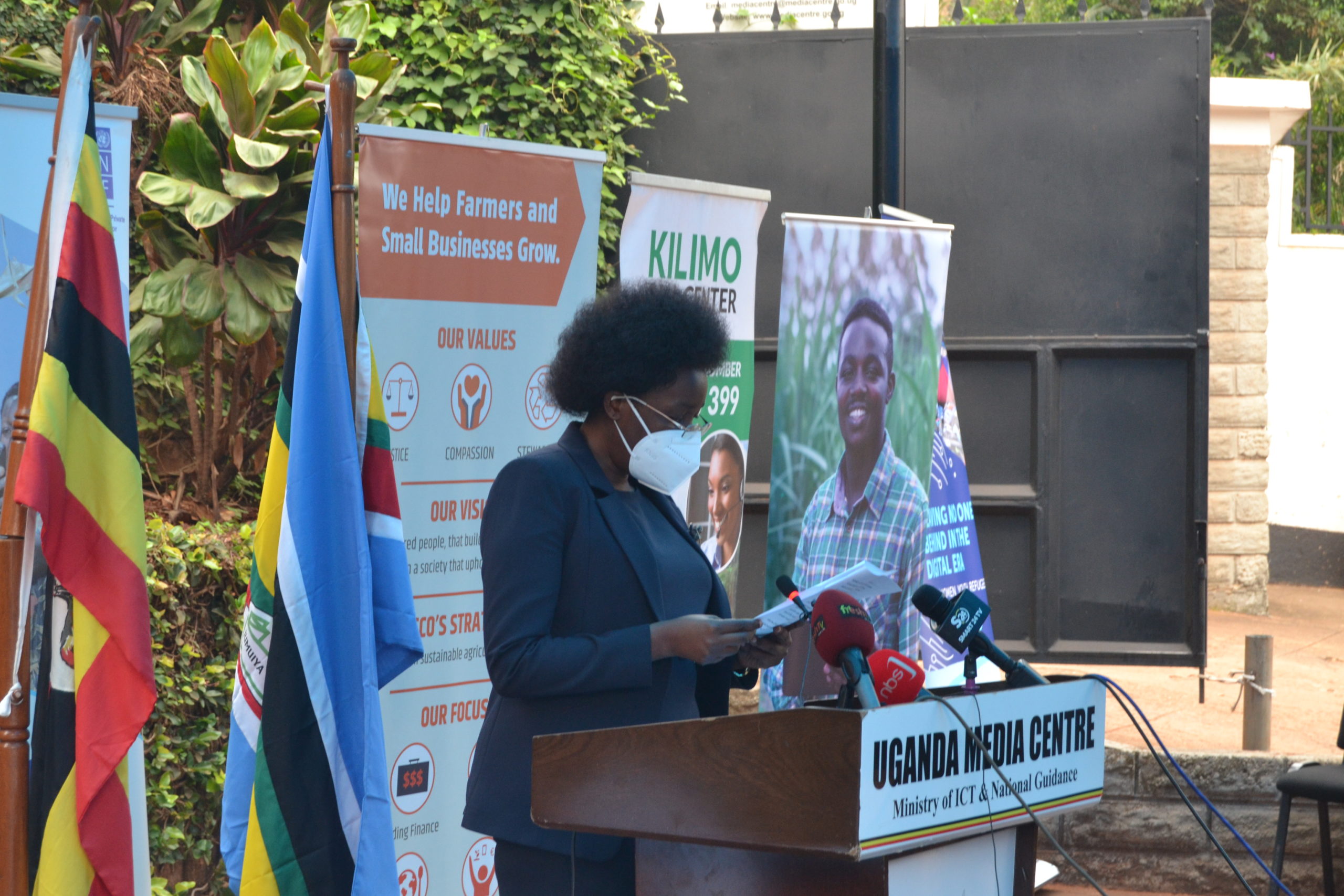The Minister for Information Communications Technology and National Guidance, Hon. Judith Nabakooba has revealed that in response to challenges presented to farmers by the COVID-19 pandemic, the government of Uganda will leverage on technological innovations to enable farmers to access agricultural input, advisory and extension services.
Addressing media at the Uganda Media Centre yesterday, Nabakooba opined that the new digital solutions to be offered through the “Inclusive Digital Innovations in Agricultural Projects”, currently being scaled by government, is expected to deliver economic benefits to the country and transform the largely subsistence-based agricultural sector.
“As the Ministry of ICT and National Guidance, we are delighted because, driving the use of technology to increase productivity in agriculture is one of our objectives in the digital transformation agenda. Digital technologies can revolutionize agriculture and help farmers and farmer groups to access information, wider markets and benefit from efficiencies using simple digital tools,” Nabakooba said.
She said that globally, the world is grappling with disruptions caused by COVID-19 that has impacted activities within different sectors of the economy, which has necessitated dependence on technology, as the right response to the current unprecedented global pandemic.
Through the Inclusive Digital Innovations in Agriculture Projects, government intends to work with development partners like the United Nations Capital Development Fund and local agri-tech start-ups to provide the necessary services to farmers.
Chris Lukolyo the UNCDF Digital Country Lead said that this program will be piloted in Northern Uganda and West Nile region, before being scaled to other parts of Uganda. He said that already, the Swedish International Development Coooperation Agency (SIDA) has dedicated US$15 million over a five-year period for the program, specifically targeting youths, women, migrants and refugees.
“The work that we do ensures that we have an enabling policy and regulatory environment. We also focus on inclusive innovations, tailored to the needs of underserved communities like refugees, migrants, rural farmers and building the skills of farmers to adopt developments in technology. We also want to build an open digital payment eco-system,” Lukolyo said.
He added that this program will help farmers constrained by lack of access to credit, extension services and digital market places.
Farmer linkages
Stella Lugalambi, from HAMWE East Africa Ltd, which is one of the agri-tech companies under the program, says that they’re helping to link farmers with service providers for input supplies, finance and digital markets.
“In Northern Uganda we work with 23 primary cooperatives; we work with West Acholi Union and different farmer groups. Our digital agents profile these farmers and take their orders for input services, so we act as a gateway for farmers to access agricultural services,” Lugalambi said.
She added that the inputs suppliers to whom they link farmers employ a buy back policy, which would help mitigate farmer losses arising from low prices offered by middle men, by enabling farmers sell their products directly through the digital market.
David Oceng, a grain farmer and member of Chamkwoki farmer group in Kitgum, attested that COVID-19 has made farmers lose direct contact with extension workers in the area.
“But,” he says, “with the help of Jolah Company that’s currently operating in Kitgum, Lamwo and Agago, I’m now able to access information on the right inputs, buyers and advisory services on my mobile phone.”
Judith Nabakooba welcomed the technological innovations within the agriculture sector, and expressed belief that these innovations will attract young people to start seeing agriculture as an attractive venture.
